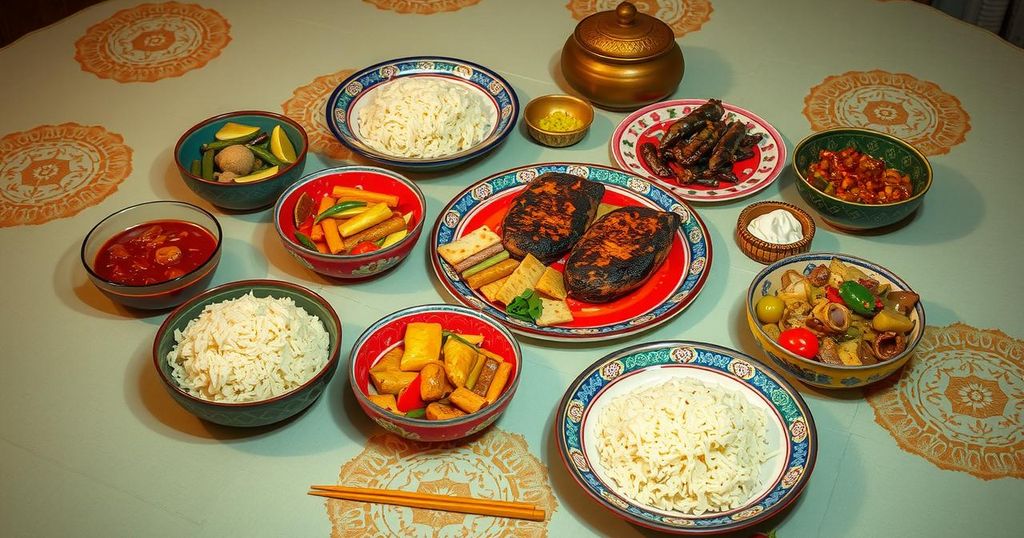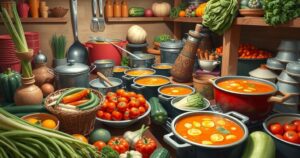Ramadan Eating Habits: Cultural Traditions, Economic Strain, and Health Implications

Ramadan in Morocco emphasizes family gatherings and iftar meals, yet it leads to increased food waste and economic strain, particularly on households with lower incomes. Cultural expectations foster overindulgence at iftar, prompting health concerns and budgetary challenges amidst rising prices. Some individuals advocate for healthier dietary practices during this period.
Ramadan is a significant month for Muslims globally, featuring daily fasting until sunset. In Morocco, this period has transformed daily life, as institutions adjust their hours, supermarkets experience increased activity, and families prepare for the fast weeks in advance. Key ingredients such as spices and grains are stocked to facilitate the iftar—the meal to break the fast—and suhoor—the pre-dawn meal, both cherished within family gatherings.
During Ramadan, food consumption in Morocco reportedly rises by 40 to 50 percent due to impulse buying and excessive preparations, according to the Moroccan Federation for Consumer Rights. Iftar gatherings, rich with elaborate dishes, are focal points of tradition, offering families an opportunity to enjoy meals together after a day of fasting. However, this cultural practice has contributed to significant food waste, complicating efforts to uphold the values of reflection and moderation that Ramadan embodies.
This surge in food consumption burdens household budgets, particularly in light of Morocco’s economic challenges. Prices of essential food items have soared, further complicating access to groceries for lower-income families. The necessity of adhering to traditional lavish iftar meals has generated added pressure, particularly for women managing household duties amid their fasting obligations.
Maria, a housewife from Rabat, expresses her struggles regarding the expectation for lavish iftar meals set by her husband, stating, “Instead of dedicating my time to worship and spiritual reflection, I find myself spending most of the day in the kitchen.” Such expectations have resulted in a notable increase in food waste as many families dispose of leftovers, with significant financial implications.
Contrasting traditional practices, some individuals, such as Shaima Salmi, have chosen healthier and less labor-intensive approaches to meal preparation by opting for balanced meals in smaller portions. Professor Ahmed Drissi highlights the societal shift in Moroccan iftar norms, attributing it to media influence and economic changes. He notes that the focus has shifted from communal sharing to personal preferences and visual displays on social media.
Dr. Faiçal Serrou, a general practitioner, indicates that this overindulgence during iftar often leads to health issues such as heartburn and bloating. He emphasizes the importance of moderation, urging families to incorporate healthier choices like vegetables and whole grains into their meals. Nutritionist Mariam Khaldi agrees, stressing that Ramadan should be a time to cultivate better eating habits and maintain a balance between physical and spiritual well-being during this holy month.
The article outlines the profound impact of Ramadan on Moroccan eating habits, illustrating a cultural shift towards abundance at iftar that has significant financial and health implications. While tradition shapes meal preparation and consumption, the associated waste and economic stress highlight the necessity for moderation. Well-informed choices during this holy month can improve overall health and foster the spiritual significance of Ramadan.
Original Source: www.moroccoworldnews.com







